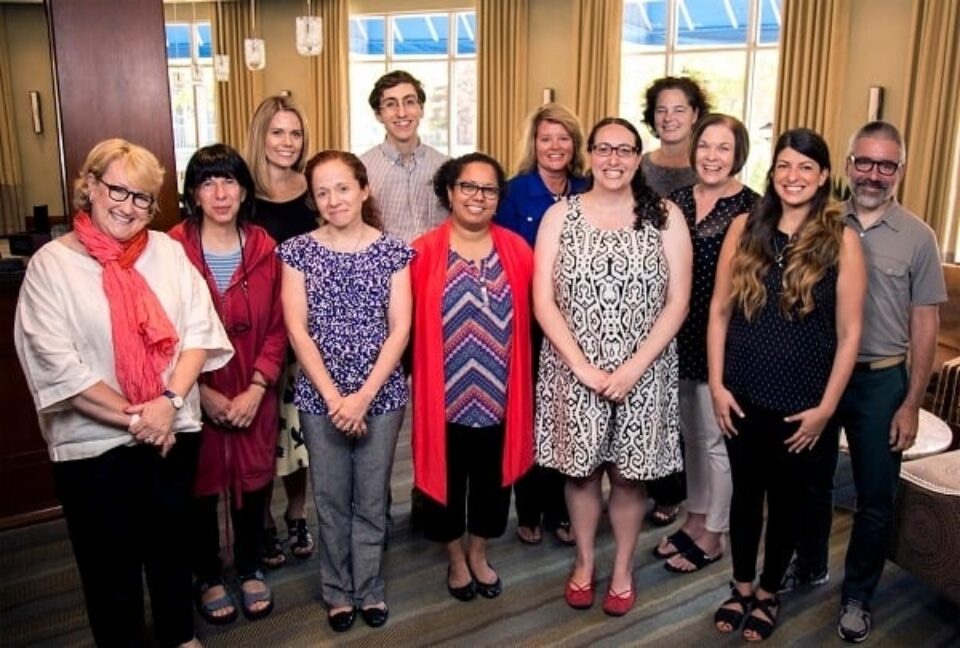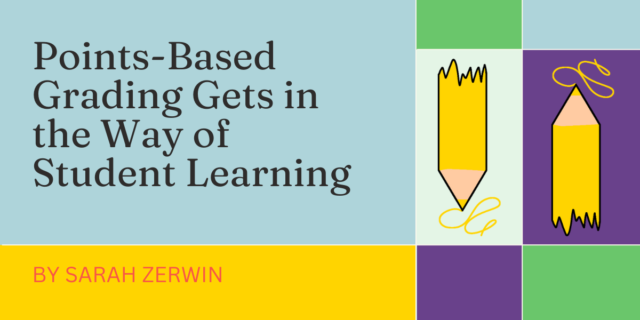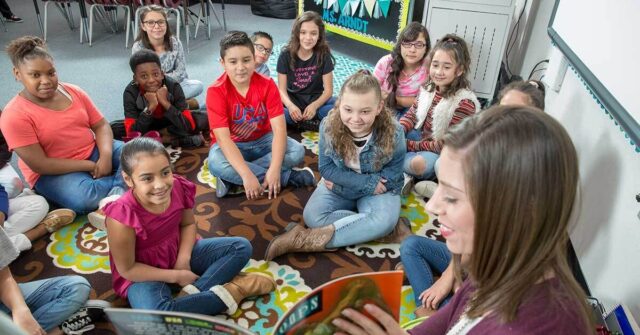
Sascha Robinett is a Heinemann Fellow with the 2014–2015 class, and has been an educator for 19 years. In today's post, Sascha explains her action research project as it relates to teacher assessment. You won't want to miss her innovative approach.
The Value of a Teacher
This is the value of the teacher, who looks at a face and says there's something behind that and I want to reach that person, I want to influence that person, I want to encourage that person, I want to enrich, I want to call out that person who is behind that face, behind that color, behind that language, behind that tradition, behind that culture. I believe you can do it. I know what was done for me.
—Maya Angelou
Throughout the country, teacher evaluation is considered by some to be the “solution” to improving public education. Many of these systems are designed to focus on the performance of the teacher. By performance, I mean the collection of summative data to determine the teacher’s efficacy in the classroom. This data collection ranges from observing the teacher and scoring them on a prescribed rubric, to ranking a teacher’s effectiveness based on their standardized test scores (or some combination). These limited data points make it appear that teacher improvement is a liability rather than a necessary component of any effective teacher’s practice, as if a “good” teacher is one who no longer needs to improve. As dedicated teachers, we know that this is not true; there are always opportunities to learn and grow professionally.
Until a few years ago, as a school director, I observed teachers, provided feedback and coaching, and was their collaborative planning partner—with the single focus on how to best serve the students. However, for the last three years, I have been responsible for evaluating teachers using performance measures. The evaluation system included a rubric to score teachers during both formal and informal observations, rate their effectiveness as planners, and determine the value of their professional contributions. The new evaluation methods had a stark effect on my teachers—the focus of their work shifted from their students to their own “effectiveness.” The teachers felt they needed to perform, and that their “performance” needed to be perfect. No teacher wanted to receive a low score and be labeled as “needing improvement” or “ineffective.” The teachers would spend hours stressing about how to achieve a high score on every indicator on the rubric, constantly worried about my judgment rather than looking forward to constructive feedback. Lesson plans submitted for evaluation were pages long for a one-hour lesson. During formal observations the teacher would try to include every instructional strategy indicated on the rubric, regardless of whether the students needed that form of support or not.
It was as if the evaluation process had a “Jekyll and Hyde” effect. When we were not involved in the evaluation process, we worked as a team focused on each students’ needs. When we were focused on evaluation, it was as if compliance and high ratings were all that mattered. We went from collaborative partners to “us and them”—with neither of us keeping in mind what was most important: our students. The fear of the repercussions of a less-than-perfect evaluation was pervasive. In a time when teachers can lose their autonomy, go without salary increases, face reassignment, or even lose their positions based on these evaluation systems, it’s frighteningly easy to see why my staff, a team of caring and smart professionals, devoted so much energy to the evaluation process. Their worry was so great that they often did not realize how the process shifted their focus from students to bureaucracy.
An Evaluation System Based on Both Students’ and Teachers’ Needs
The goal of my action research project with the Heinemann Fellows was to change this by creating a system where teachers were in the driver’s seat, both in determining what it meant to be effective and in demonstrating their effectiveness. This year I worked with each teacher to help them create their own action research project, which would replace the problematic evaluation system we had been using. I began by asking each teacher what change they’d like to see in their students and their theory on how they thought the change might occur. Instead of trying to address all the rubric indicators, the teachers would focus on the indicators that applied to their area of research. Not one teacher set an easy goal for herself. Each proposed project pushed beyond the limited descriptions within the rubric indicators.
Teachers’ Sample Action Research Questions
- “If I teach the students to use inclusive language and active listening how will it affect my kindergartners’ ability to learn from one another and collaborate on task in order to build understanding?”
- “If I develop my students’ ability to develop an action plan based on their goals (individual/class) and hold themselves accountable for implementing the plan with the support of specific feedback how will it affect my students’ ability to take risks, make mistakes, and preserve through challenges?”
- “If I use variety of instructional strategies to develop my 5th graders’ understanding of the purpose of tasks in relation to authentic usage and their growth goals how will it affect my students’ ownership in meeting growth expectations to achieve personal best?”
Unlike programs or professional development designed to meet the needs of all staff members, the teachers’ proposals were data driven, zeroing in on their own students’ needs. Allowing the teachers to determine how they wanted change their practice laid the ground work for innovation rather than compliance.
Our next step was to develop the teachers’ action plans. Again, they spoke and I wrote. We created an action plan that included implementation steps, data collection, needed resources, and indicators of progress. The purpose of developing the plan together was to get their ideas flowing and to determine the type of support needed to conduct their research. It turned out what each teacher needed the most was permission to take risks and be okay with failure. With “scars” from the old system, many of the teachers were apprehensive about taking on new challenges that may not result in “perfect” outcomes. But, as all great innovators have taught us, it is through mistakes that we learn the most. My role as administrator became clear: I was to be the cheerleader of risk taking, and a reflective partner when an outcome was not as anticipated.
Helping Teachers See their Progress
Each teacher pursued their action research projects independently in the classroom. Many changed their action plans multiple times based on new learnings and “mistakes.” By March, they were all deep into their projects, but feeling frustrated that they were not doing enough or not applying their new learnings consistently. It was not until I had individual coaching sessions with each teacher that they were able to appreciate the change that occurred in their practice and the impact they were having on their students’ growth. In each session, every teacher began by explaining what wasn’t going well in their project. However, when I asked, “What is working?” they shared the amazing work they were doing in the classroom. I scripted what the teachers shared, and each teacher was able to use that record to create a “how-to” plan for replicating their research and the impact each step had on their students. By the end of the session, the teachers went from thinking they had not accomplished enough, to seeing that the work they had done mattered and should be shared with others. Most importantly, the students had benefited!! Last year at this time the students’ needs were not at the center, and now they are all that we are talking about.
I will continue to pursue my action research project, and so will the teachers. We decided, through much reflection, that we all still had much more to learn by pursing the answers to our questions. Each teacher has determined what changes she will implement in the new school year, and the next steps she would like to pursue. I will focus on how to provide the teachers more support through peer groups and incorporating the teachers’ action research projects into our weekly professional development meetings. I will also focus on how my research is changing me as a leader, because, as I have learned throughout this year, I too must have a sense of agency with my work if I want others to be inspired to do the same.
♦ ♦ ♦ ♦

Sascha Robinett is the principal and co-founder of Milagro Charter School in Los Angeles. Her action research question asks, "How can engaging teachers in the action research process versus a performance evaluation impact their sense of agency in improving instructional practice?" Follow Sascha's progress on Twitter @SaschaRobinett.


